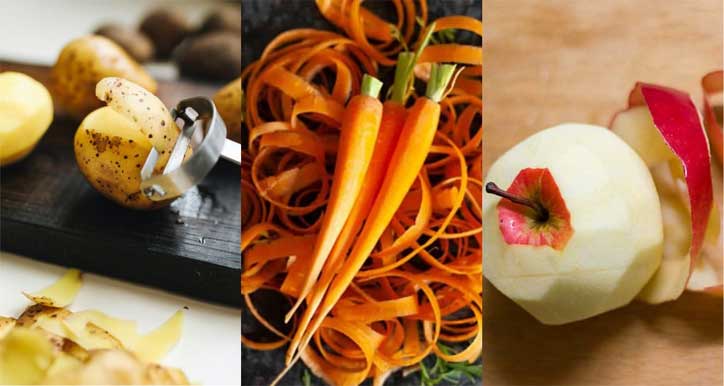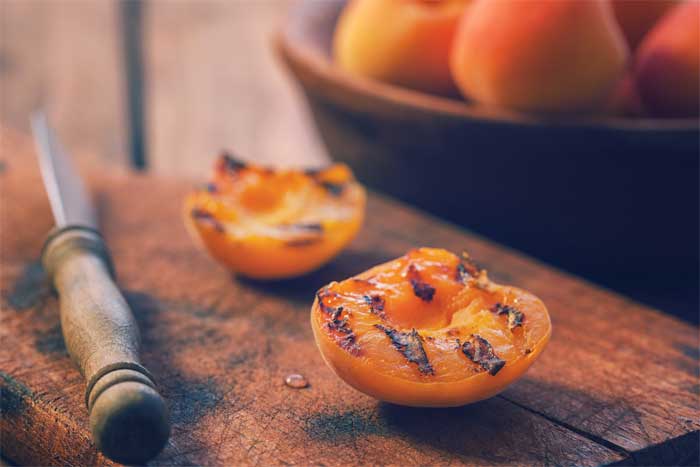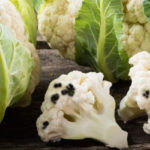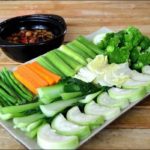Food is the primary source of nourishment for the body. However, if you’re making these common cooking mistakes, you’re inadvertently reducing the quality of your meals.

Daily cooking habits can silently diminish the nutritional value of your meals. This includes both meal preparation and presentation, which can affect nutrient content and absorption. The good news? Small changes can make a significant difference.
Habits That Reduce Food Nutrition
Peeling Vegetables and Fruits
Like most people, peeling vegetables and fruits is a common step in meal preparation. You might do this to avoid pesticide residue or to make them more palatable. However, if you’re aiming to maximize nutrition, consider skipping the peeler for certain produce.
The skins of fruits and vegetables like apples, cucumbers, carrots, and potatoes are rich in fiber, which supports healthy digestion and blood sugar balance. They also contain antioxidants and phytochemicals, plant compounds that reduce inflammation and protect cells from damage. Peeling them means losing essential nutrients that make these foods beneficial for gut health, heart health, and immunity.
Instead, thoroughly wash fruits and vegetables and keep the skins on whenever possible to retain their nutritional value. Methods like roasting, sautéing, and blending can also soften the skins, making them less noticeable and easier to consume.

Overcooking Vegetables
While boiling makes vegetables easier to digest, many people overdo it. Overcooking vegetables causes water-soluble vitamins like vitamin C and some B vitamins to leach into the cooking water. Unless you’re using that water, those nutrients never make it to your plate.
To preserve vegetable nutrients, cook them for shorter periods. Stop when they turn bright in color, are tender when pierced with a fork, and still have a slight crunch. This ensures they’re cooked enough to enjoy but not so long that most vitamins are lost. Another tip is to use less water and reuse it in soups, stews, or sauces to recapture some of those nutrients. Steaming, stir-frying, and lightly roasting are also excellent methods to retain maximum nutrition.
Not Pairing Fats with Certain Produce
After decades of “fat-free” and “low-fat” marketing, fats have gotten a bad rap—but avoiding them isn’t always the best choice. Fats aren’t just a macronutrient (meaning we need them in larger amounts); they also aid in the absorption of vitamins A, D, E, and K. These vitamins are fat-soluble, meaning your body requires fat to absorb them.
Specifically, fats stimulate the digestive system to release bile and carrier molecules, which help transport these vitamins into the bloodstream. Without fat, nutrients like beta-carotene in carrots, vitamin K in leafy greens, and vitamin E in spinach or bell peppers are largely wasted.
To maximize the benefits of your produce, add healthy fat sources to help your body absorb fat-soluble vitamins. Drizzle olive oil or avocado oil on salads and roasted vegetables, sprinkle chia or flax seeds on smoothies, or blend half an avocado into vegetable wraps. Even a small amount, like a teaspoon of nut butter, is enough to help your body utilize these vitamins.
Burning Food
Cooking food until it’s slightly charred can be tempting, as it creates a crispy texture and smoky flavor. You might even burn food to ensure it’s thoroughly cooked, especially when grilling or roasting meat. The problem? High-heat methods like frying or charring can destroy heat-sensitive vitamins, such as vitamin C and some B vitamins. They can also produce harmful compounds like acrylamide in starchy foods. Similarly, charred meat creates chemicals called heterocyclic amines (HCAs) and polycyclic aromatic hydrocarbons (PAHs), linked to inflammation and long-term health issues.
Instead, lightly sauté, roast at lower temperatures, or use an air fryer to achieve crispiness without sacrificing too many nutrients. Opt for golden brown instead of black. If you crave smoky flavor, incorporate spices like smoked paprika instead of relying on charring.

Cutting Produce Too Early
There’s nothing wrong with prepping fruits and vegetables ahead of time to save time. However, cutting them too early can reduce their nutritional value: Once cut, the exposed surfaces begin to oxidize, breaking down sensitive vitamins like vitamin C and folate.
To preserve nutrient integrity, cut and cook immediately. If prepping in advance, store in airtight containers, tightly wrap cut fruits, and add a squeeze of lemon juice to slow browning. You can also submerge carrots and celery in water in the fridge to keep them crisp and fresh.
“The Do’s and Don’ts of Eating Broccoli for Optimal Health”
Everyone knows that broccoli is a nutrient-rich superfood. However, those with stomach problems, gout, or pregnant women should avoid consuming excessive amounts of broccoli. It is important to know how to select, prepare, and consume broccoli correctly to avoid any adverse effects and to maximize its health benefits.



































